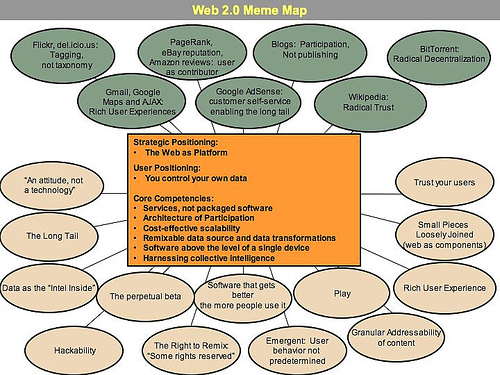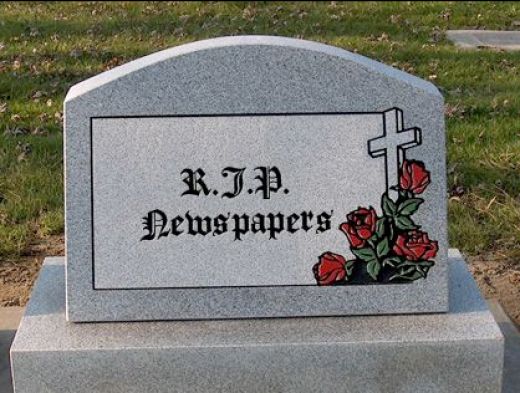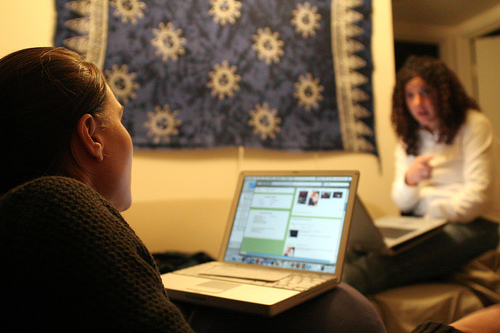Everything can be gathered in one place now. Private information can be kept with us at all times. We can stay at home and get movies from netflix or onDemand and not ever have to leave the house.The dot com collapse marked a turning point for the web and emergence of Web 2.0. The strategic positioning is the web as a platform. The user positioning is you control your own data. Its core includes services, participation, scalability, and collective intelligence. Netscape has been replaced by Google, DoubleClick by AdSense, and Akamai by BitTorrent. With BitTorrent and Web 2.0 the service automatically gets better the more people use it. Collective intelligence has made companies like Tahoo, Google, eBay, Amazon, Wikipedia, Cloudmark all possible and successful. RSS has made a big advancement in web architecture.
Discussion Questions:
1. What is the next big thing for the web?
2. In years to come could there be an emergence of Web 3.0?
Definition of Web 2.0
Web 2.0 summit/expo
Discussion Questions:
1. What is the next big thing for the web?
2. In years to come could there be an emergence of Web 3.0?
Definition of Web 2.0
Web 2.0 summit/expo




 RSS Feed
RSS Feed